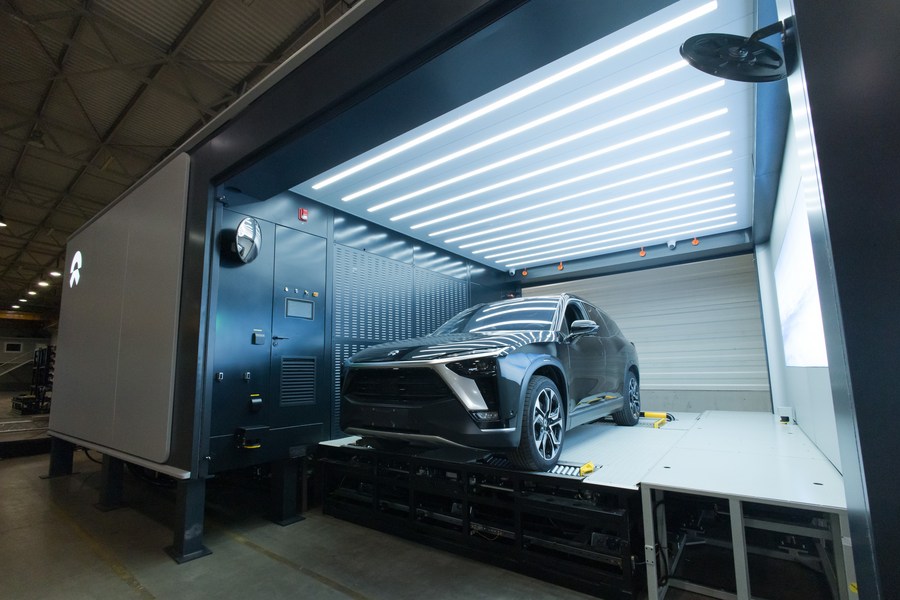
People experience a Seres 5 electric car during a media preview of the 100th Brussels Motor Show in Brussels, Belgium, Jan. 13, 2023. (Xinhua/Zheng Huansong)
BEV sales in China soared by almost 85 percent, according to PwC's analysis of new registration figures in 14 selected markets.
BERLIN, Feb. 7 (Xinhua) -- Two-thirds of global sales of battery electric vehicles (BEVs) in 2022 were in China, according to a study published by auditing and consulting company PwC Strategy& (Germany) on Tuesday.
As global BEV sales in 2022 grew by 70 percent year-on-year, China as the world's largest BEV market sustained its "dramatic expansion of recent years," PwC's study said. BEV sales in China soared by almost 85 percent, according to the company's analysis of new registration figures in 14 selected markets.
"We are currently watching the transformation of mobility reach the next level and come of age," said Felix Kuhnert, partner at PwC Germany.

A NIO electric car is seen in a battery swap station during a ceremony of the shipment of the first battery swap station produced by the NIO Power Europe Plant in Biatorbagy, Hungary, on Sept. 16, 2022. (Photo by Attila Volgyi/Xinhua)
The electric car market in the United States developed similarly strong, while sales in Europe's top five markets only grew at 28 percent last year, according to the study.
In Germany, Europe's largest car market, sales grew 32 percent over the course of last year, although they picked up at the turn of the year as the expiry date for purchasing premiums for electric cars approached.
It was the first time that the market share of electric vehicles in Germany exceeded that of combustion engines. Consumers have now "internalized the benefits of electric cars to such an extent that in many cases they will turn to electric cars in the future even without buying incentives," Kuhnert said.

A driver charges an electric car at a shared electric bus charging station in Qingdao, east China's Shandong Province, May 11, 2022. (Xinhua/Li Ziheng)
However, recent figures from consulting firm Ernst & Young (EY) showed that overall car sales in Europe fell to a record low in 2022, down 5 percent compared to the already "very weak" previous year.
Meanwhile, Germany's largest carmaker Volkswagen Group saw deliveries fall 7 percent year-on-year, to 8.26 million vehicles worldwide in 2022, as supply shortages lead to temporary production stops.
Nevertheless, in line with overall market developments, the company's BEV deliveries soared 26 percent to 572,100 units last year, and Volkswagen said it had made "significant progress" in its electric transition.




 A single purchase
A single purchase









